 Your new post is loading...
 Your new post is loading...

|
Scooped by
Gust MEES
|
Gute Sitten ist der positive moralische Wert der Sitte. Der Begriff umfasst das Gerechtigkeits- und Anstandsgefühl aller moralisch und gerecht Denkenden (Erwachsenen) in der Gesellschaft und entspricht folglich der vorherrschenden Rechts- und Sozialmoral. Gute Sitten ist, genau wie die im Grundgesetz für die Bundesrepublik Deutschland verwendete Formulierung Sittengesetz ( Abs.

|
Scooped by
Gust MEES
|
Harassment covers a wide range of behaviors of an offensive nature. It is commonly understood as behavior that demeans, humiliates or embarrasses a person, and it is characteristically identified by its unlikelihood in terms of social and moral reasonableness. In the legal sense, these are behaviors that appear to be disturbing, upsetting or threatening.

|
Scooped by
Gust MEES
|
Umgangsformen sind Formen sozialer Interaktion. Eine Gesellschaft bewertet bestimmte Verhaltensformen negativ (z. B. als derb, roh, ungehobelt, unhöflich, ungesittet, feige) oder positiv (z. B. als gut erzogen, höflich, kultiviert, edel, tapfer) und unterscheidet „gute" und „schlechte" Umgangsformen. Häufig verwendet man in der deutschen Sprache das Wort „Umgangsformen" ohne den Zusatz „gut" und meint gleichwohl „gute Umgangsformen".

|
Scooped by
Gust MEES
|
Hubris (, from ancient Greek ) describes a personality quality of extreme or foolish pride or dangerous overconfidence, often in combination with (or synonymous with) arrogance. In its ancient Greek context, it typically describes behavior that defies the norms of behavior or challenges the gods, and which in turn brings about the downfall, or nemesis, of the perpetrator of hubris.

|
Scooped by
Gust MEES
|
Part of the challenge facing educationalists is that technological change will call for skills that fall outside of age-old approaches to curriculum design and teaching. Emotional intelligence, creative thinking, and collaboration are just three core aptitudes that will be needed, but which cannot easily be taught in a traditional classroom environment. “Updating curriculum should always be on the agenda,” says Jaime Saavedra of the World Bank, quoted in the WEFFI report. “But it is incredibly urgent to invest in changing the behaviour of teachers and improving what happens inside the classroom. Learn more / En savoir plus / Mehr erfahren:

|
Scooped by
Gust MEES
|
From Blade Runner to I, Robot, the big screens of Hollywood have predicted the rise of the machine. Automated intelligences will wait our tables and drive our cabs. They will serve us by performing menial tasks. But fact is now surpassing fiction. Automation has moved beyond the factory assembly line as computers are diagnosing illnesses, providing legal counsel, and make financial and political decisions. And if artificial intelligence really is faster, smarter and more reliable, what are we left with?
The answer is precisely that element which makes us less efficient and slower. Our humanity. But rather than being seen as a weakness, this is actually our strongest suit. It’s one we need to empower, because studies show that as the world becomes increasingly automated, computerised and digitalised, we are losing the very skills that define us as human. Just when we need them the most.
Our empathy is something that computers will always struggle to emulate. We need to celebrate what makes us different from even the smartest of the machines. While the future belongs to those who are able to navigate this increasingly digitalised world of ours, the choicest spoils will fall to those who can combine technological fluency with emotional intelligence. Learn more / En savoir plus / Mehr erfahren: https://www.scoop.it/t/21st-century-learning-and-teaching/?&tag=Empathy https://www.scoop.it/t/21st-century-learning-and-teaching/?&tag=Emotional+intelligence

|
Scooped by
Gust MEES
|

|
Scooped by
Gust MEES
|

|
Scooped by
Gust MEES
|
By teaching students these skills in an authentic, applicable way, will they see each other differently? It’s worth finding out. With so many curricular and time restraints on teachers, how can we be expected to explicitly teach empathy in a meaningful way?
A Definition Of Empathy
Webster’s dictionary defines empathy as: the action of understanding, being aware of, being sensitive to, and vicariously experiencing the feelings, thoughts, and experience of another of either in the past or present without having the feelings, thoughts, and experience fully communicated in an objectively explicit manner; also: the capacity for this. Learn more / En savoir plus / Mehr erfahren:
http://www.scoop.it/t/21st-century-learning-and-teaching/?tag=Empathy

|
Scooped by
Gust MEES
|
Researchers from the University of Otago, New Zealand, wanted to find out if engaging in normal creative acts make people feel better. An analysis of the information found a pattern of more enthusiasm and higher ‘flourishing’ following days when the undergraduates were more creative.
Study author Dr Tamlin Conner said: ‘There is growing recognition in psychology research that creativity is associated with emotional functioning.
‘However, most of this work focuses on how emotions benefit or hamper creativity, not whether creativity benefits or hampers emotional wellbeing.’ Learn more / En savoir plus / Mehr erfahren: http://www.scoop.it/t/21st-century-learning-and-teaching/?tag=Empathy http://www.scoop.it/t/21st-century-learning-and-teaching/?tag=Soft+Skills

|
Scooped by
Gust MEES
|

|
Scooped by
Gust MEES
|

|
Scooped by
Gust MEES
|
Why are some people so much better at expressing empathy than others?
Psychologists define empathy as sensitivity to the emotions, both positive and negative, of other people. You can feel empathic—or empathetic (the two words are used interchangeably)—to someone who is feeling positive feelings, such as amusement or joy, in addition to someone who is feeling sadness or anger. “Empathy is being in the heart of another person,” says Susan Kuczmarski, a cultural anthropologist and adjunct faculty member in the executive education program at Northwestern University’s Kellogg School of Management.
Researchers have determined that people react in one of two ways when faced with another person’s emotions. Sometimes people respond with “empathic concern” or caregiving. They see themselves as a source of comfort or support for the other person.
But sometimes people feel threatened by the other person’s emotions and focus instead on themselves. They might try to help, to minimize their own discomfort. Typically they distance themselves. Psychologists call this response “empathic distress.” Learn more / En savoir plus / Mehr erfahren: http://www.scoop.it/t/21st-century-learning-and-teaching/?tag=Empathy http://www.scoop.it/t/21st-century-learning-and-teaching/?tag=Soft+Skills
|

|
Scooped by
Gust MEES
|
Sur les autres projets Wikimedia : Les bonnes mœurs sont les habitudes, les usages conformes à la moralité, à la religion et à la culture d'un pays ou d'un peuple. Elles constituent un ensemble de normes, le plus souvent coutumières, en partie formulées dans les traités de civilité et dans les règles de droit civil et pénal.
Les bonnes mœurs sont les habitudes, les usages conformes à la moralité, à la religion et à la culture d'un pays ou d'un peuple. Elles constituent un ensemble de normes, le plus souvent coutumières, en partie formulées dans les traités de civilité et dans les règles de droit civil et pénal. Elles varient selon les peuples et les époques, et constituent l'un des objets d'étude de l'ethnologie et de la sociologie historique.
La notion de bonnes mœurs porte essentiellement sur la vie privée et sur son respect, elle est le contrepoint de celle d'ordre public.
Les bonnes mœurs renvoient de nos jours principalement aux sexualités : pornographie, inceste, polygamie, prostitution, proxénétisme, pudeur, etc. Learn more / En savoir plus / Mehr erfahren: https://www.scoop.it/topic/21st-century-learning-and-teaching/?&tag=Civilit%C3%A9 https://www.scoop.it/topic/21st-century-learning-and-teaching/?&tag=civility http://www.scoop.it/t/21st-century-learning-and-teaching/?&tag=Empathy https://www.scoop.it/topic/21st-century-learning-and-teaching/?&tag=DQ http://www.scoop.it/t/21st-century-learning-and-teaching/?tag=Empathy http://www.scoop.it/t/21st-century-learning-and-teaching/?tag=Soft+Skills

|
Scooped by
Gust MEES
|

|
Scooped by
Gust MEES
|

|
Scooped by
Gust MEES
|
As the world fills with more sophisticated AI and ubiquitous technology, human skills--compassion, empathy, etc.--will define the competitive edge of workers and entire organizations. So those interested in thriving in a high-tech world must put renewed prioritization on emotional intelligence and soft skills.
Soft skills represent the top three missing skills of job applicants according to the Society of Human Resource Management's (SHRM) 2019 State of the Workplace.
Top 6 Missing Skills in Job Applicants
Problem-solving, critical thinking, innovation, and creativity (37 percent)
Ability to deal with complexity and ambiguity (32 percent)
Communication (31 percent)
Trade skills (carpentry, plumbing, welding, machining, etc.) (31 percent)
Data analysis / Data science (20 percent)
Science / Engineering / Medical (18 percent)
The significance of developing and applying social and emotional skills is growing. Soft skills are twice as predictive of a student's academic achievement as home environment and demographics and 30-40 percent of jobs in growth industries require soft skills. Additionally, 57 percent of leaders say soft skills are more important than hard skills.
Learn more / En savoir plus / Mehr erfahren: http://www.scoop.it/t/21st-century-learning-and-teaching/?&tag=Empathy https://www.scoop.it/topic/21st-century-learning-and-teaching/?&tag=DQ http://www.scoop.it/t/21st-century-learning-and-teaching/?tag=Empathy http://www.scoop.it/t/21st-century-learning-and-teaching/?tag=Soft+Skills

|
Scooped by
Gust MEES
|
Behavior changes in people doesn't just happen from one day to the next. Changes in this area takes time - and often, the motto: "You can´t teach an old dog new tricks" applies. Nevertheless - the situation is not hopeless and people are capable of change and are often willing to do so. You are likely to achieve the desired success, if you consider the following four "change levers":
Attitude & Motivation
Knowledge & Skills
Structures & Processes
Role Models & Culture
Learn more / En savoir plus / Mehr erfahren: https://www.scoop.it/t/21st-century-learning-and-teaching/?&tag=change

|
Scooped by
Gust MEES
|
In her early teaching years, Wanny Hersey learned how hands-on projects—which would eventually become known as “making”— could engage and motivate her English students like nothing she’d seen before. She’d witnessed the heartbreak of watching a one-size-fits-all education system fail to engage students who needed it most. And the joy of nurturing students’ natural desire to solve problems and create. Design thinking gives purpose to making. It's a problem-solving, action-oriented, human-centered process that we engage in to assist our students in their journeys as makers. These experiences as a teacher and administrator inspired her to found Bullis Charter school—with both her past and future students in mind. The award winning K-8 public school is focused on design thinking, making, and project-based learning—all of which Wanny believes engage children, and grow their natural curiosity. Wanny spoke to EdSurge about how making builds empathy, why it’s important to compensate teachers for continuously learning, and her advice for administrators who want to drive change through design thinking. Learn more / En savoir plus / Mehr erfahren: http://www.scoop.it/t/21st-century-learning-and-teaching/?&tag=Design-Thinking https://gustmees.wordpress.com/2014/10/03/design-the-learning-of-your-learners-students-ideas/

|
Scooped by
Gust MEES
|
Does the character of our leaders matter? According to research done by KRW International it really, really, does!
Welcome to a Leadership Channel Podcast on TotalPicture. Joining Peter Clayton today is Fred Kiel, PhD, co-founder of KRW International, the author of Return On Character. For more than thirty years, he has helped Fortune 500 CEOs and senior executives build organizational effectiveness through leadership excellence and mission alignment. Strategy+Business considers Return on Character one of the best business books of 2015.
With Credit Suisse replacing their CEO after years of fines and the future of companies like Uber and Yahoo! being questioned because of bad CEO behavior, (or the current CEO poster boy, infamous former Turing CEO Martin Shkreli), could this be the wakeup call we need to start measuring how the character of a leader impacts their organization's performance?
For the first time we now have data to measure the correlation. In Return On Character (Harvard Business Review Press,), the findings are revealed from KRW International's seven-year study on the financial impact of character. Learn more / En savoir plus / Mehr erfahren: http://www.scoop.it/t/21st-century-learning-and-teaching/?&tag=LeaderShip http://www.scoop.it/t/21st-century-learning-and-teaching/?&tag=LeaderSkills http://www.scoop.it/t/21st-century-learning-and-teaching/?&tag=Character http://www.scoop.it/t/21st-century-learning-and-teaching/?&tag=Soft+Skills Check also: - http://www.scoop.it/t/21st-century-learning-and-teaching?tag=Emotional-Intelligence - http://www.scoop.it/t/21st-century-learning-and-teaching?tag=Emotions-and-Learning - http://www.scoop.it/t/21st-century-learning-and-teaching?tag=Empathy - http://www.scoop.it/t/21st-century-learning-and-teaching?tag=EQ - http://www.scoop.it/t/21st-century-learning-and-teaching?tag=Daniel-GOLEMAN

|
Scooped by
Gust MEES
|
Empathy is systemically related to all of the abilities on the compass, particularly to self-awareness at "true south." Research suggests that the more children become aware of themselves, the better they become at understanding others. Volumes have been written about how to teach empathy, and there is still much to learn. In an excellent article from the Greater Good Science Center at the University of California, Berkeley, author Roman Krznaric, Ph.D., claims that highly empathetic people:
Cultivate curiosity about strangers
Challenge prejudices and discover commonalities
Gain direct experience of other people's lives
Listen and open themselves to others
Inspire mass action and social change
Develop an ambitious imagination
All of these behaviors foster personal growth and lifelong learning while contributing to the growth of society, particularly empathy's role in inspiring social change.
Learn more / En savoir plus / Mehr erfahren: http://www.scoop.it/t/21st-century-learning-and-teaching/?&tag=Empathy

|
Scooped by
Gust MEES
|
Like other aspects of modern life, education can make the head hurt. So many outcomes, so much important work to do, so many solutions and strategies, so many variations on teaching, so many different kinds of students with so many different needs, so many unknowns in preparing for 21st Century life and the endless list of jobs that haven’t been invented.
What if we discovered one unifying factor that brought all of this confusion under one roof and gave us a coherent sense of how to stimulate the intellect, teach children to engage in collaborative problem solving and creative challenge, and foster social-emotional balance and stability—one factor that, if we got right, would change the equation for learning in the same way that confirming the existence of a fundamental particle informs a grand theory of the universe?
That factor exists: It’s called empathy. Learn more / En savoir plus / Mehr erfahren: http://www.scoop.it/t/21st-century-learning-and-teaching/?tag=Empathy http://www.scoop.it/t/21st-century-learning-and-teaching/?tag=Soft+Skills

|
Scooped by
Gust MEES
|

|
Scooped by
Gust MEES
|

|
Scooped by
Gust MEES
|
|



 Your new post is loading...
Your new post is loading...





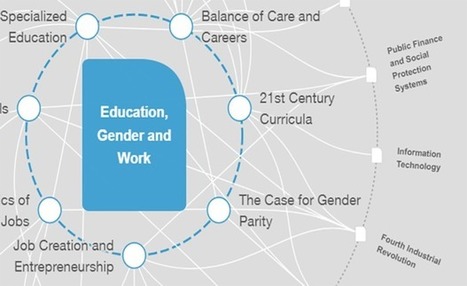






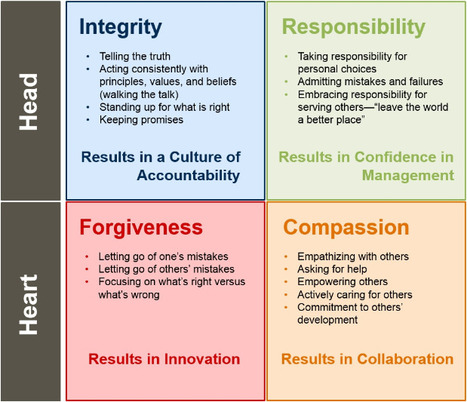



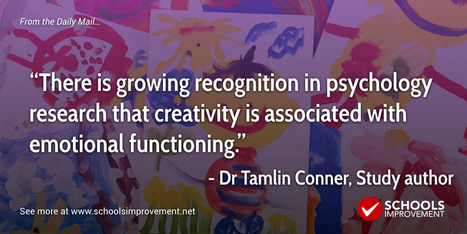








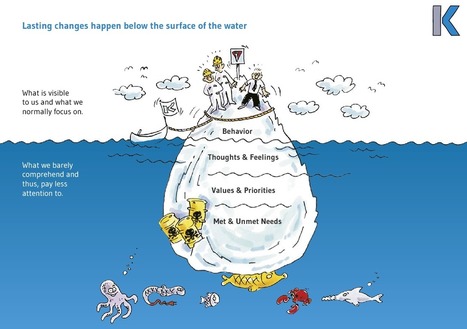
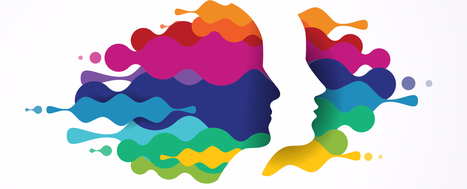

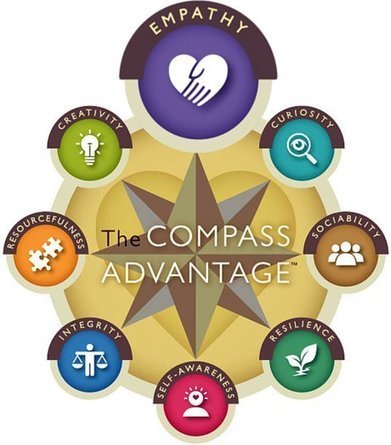


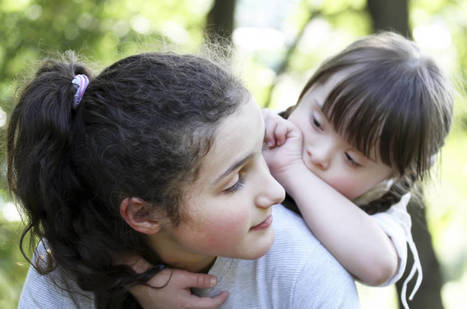


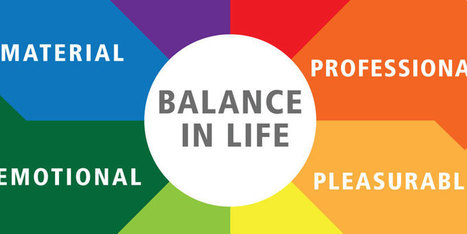








Gute Sitten ist der positive moralische Wert der Sitte. Der Begriff umfasst das Gerechtigkeits- und Anstandsgefühl aller moralisch und gerecht Denkenden (Erwachsenen) in der Gesellschaft und entspricht folglich der vorherrschenden Rechts- und Sozialmoral.
Learn more / En savoir plus / Mehr erfahren:
https://www.scoop.it/topic/21st-century-learning-and-teaching/?&tag=Civilit%C3%A9
https://www.scoop.it/topic/21st-century-learning-and-teaching/?&tag=civility
http://www.scoop.it/t/21st-century-learning-and-teaching/?&tag=Empathy
https://www.scoop.it/topic/21st-century-learning-and-teaching/?&tag=DQ
http://www.scoop.it/t/21st-century-learning-and-teaching/?tag=Empathy
http://www.scoop.it/t/21st-century-learning-and-teaching/?tag=Soft+Skills
http://www.scoop.it/t/21st-century-learning-and-teaching/?tag=Daniel-GOLEMAN
http://www.scoop.it/t/21st-century-learning-and-teaching/?tag=Emotional-Intelligence
http://www.scoop.it/t/21st-century-learning-and-teaching/?tag=EQ
https://www.scoop.it/t/21st-century-learning-and-teaching/?&tag=Frank+SONNENBERG